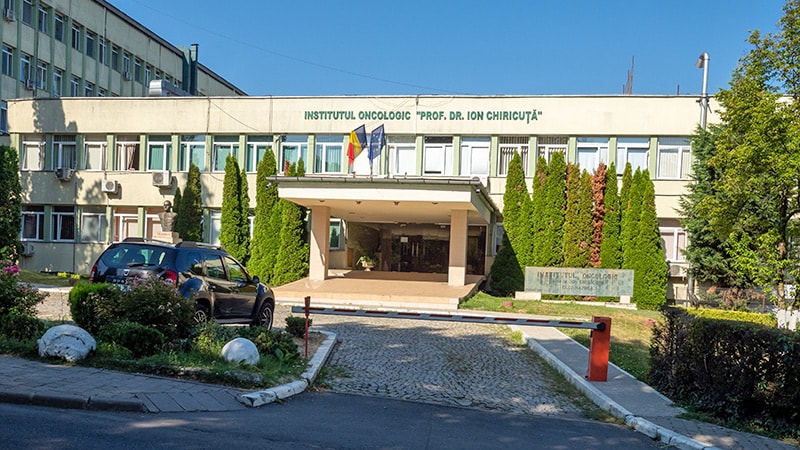Roxana Plesoianu
“Comprehensive cancer infrastructures are developed at very different levels across Europe, and this creates inequalities in access to care, to quality of treatment, and research opportunities,” Roxana Plesoianu, operations manager at the OECI, told Medscape Medical News. “We are trying to transform the cancer culture so that all patients, no matter where they live, can receive the best possible care.”
What Is CCI4EU?
A comprehensive care infrastructure is a network of cancer care centers, research institutions, and educational programs working together to provide optimal care, integrate research with treatment, and foster innovation. “Being treated in a dynamic system is far better than being treated in a siloed center because you receive better integrated patient pathways and better quality and access to care,” Plesoianu explained.
Plesoianu said the European Commission set an ambitious target of treating 90% of patients with cancer in comprehensive cancer centers by 2030. But today, only 20%-40% of these patients have access to such centers, leaving a significant proportion without the highest standard of care.
To achieve the European Commission’s goal, CCI4EU is focusing on enhancing the maturity of cancer infrastructures in different EU member states. This includes addressing imbalances in clinical trial access, improving diagnostic and treatment capabilities, and building sustainable systems that integrate care, research, and education.
Romania: A Deep Dive Case Study
Romania is joining the CCI4EU’s deep dive consultancy program, which will officially launch in November.
The program will be delivered to 10 cancer infrastructures, mainly in Central and Eastern Europe, where cancer care and research capacities are underdeveloped. It involves sending expert teams from established European cancer centers to provide hands-on guidance. The experts — 94 in total, each offering 22 working days over a year — will conduct three site visits to assess the needs of each institution. They help establish new capabilities, such as early phase clinical trial units or technology transfer offices, which are crucial for advancing cancer care and research. For example, a hospital may lack the expertise to run early phase cancer trials. CCI4EU experts guide the unit’s setup, from infrastructure requirements to staff training.
One of Romania’s primary focuses will be improving cancer screening. Although the country has launched pilot screening programs, such as for breast and cervical cancer, it lacks the appropriate infrastructure to support these programs beyond the pilot phase, leaving gaps in early detection services. Moreover, there are currently no national screening programs for lung and colon cancer, two of the deadliest cancer types in the country.
Another problem Romania aims to address is the lack of support for patients after treatment and during recovery. “We need an intermediary institution to educate patients on proper nutrition, appropriate exercises, and psychological support. We already know we are missing these essential elements,” Nicoară said.
Bridging the West-East Gap
More broadly, CCI4EU is also organizing regional conferences to promote knowledge sharing among oncologists, researchers, and other cancer care professionals from all Member States and the participating Associated Countries. “The aim is to foster dialogue and collaboration, bridging the gaps between countries with mature cancer infrastructures and those in earlier stages of development,” Simon Oberst, director of quality and accreditation at OECI, told Medscape Medical News.
Additionally, CCI4EU offers online training courses covering research methods, clinical trial design, and innovative treatment approaches. The online format allows unlimited participation, ensuring that healthcare professionals across Europe benefit from these educational opportunities.
As for the program’s deep dives that Romania will benefit from, their “whole raison d’être”, according to Oberst, is to improve cancer research infrastructure in Central and Eastern European countries so more patients have access to clinical trials. “This leads to quicker access to innovative drugs and therapies,” he told Medscape Medical News.
“It’s a coordination and support action; a technical term meaning we’re trying to prove what works. We’re assessing whether these deep dives have a real impact on cancer research and patient outcomes to inform future grants.”
Plesoianu, Oberst, and Nicoară reported no relevant financial relationships.
Manuela Callari is a freelance science journalist specializing in human and planetary health. Her words have been published in The Medical Republic, Rare Disease Advisor, The Guardian, MIT Technology Review, and others.
Source link : https://www.medscape.com/viewarticle/europes-deep-dive-equitable-cancer-care-2024a1000j09
Author :
Publish date : 2024-10-17 14:05:00
Copyright for syndicated content belongs to the linked Source.
